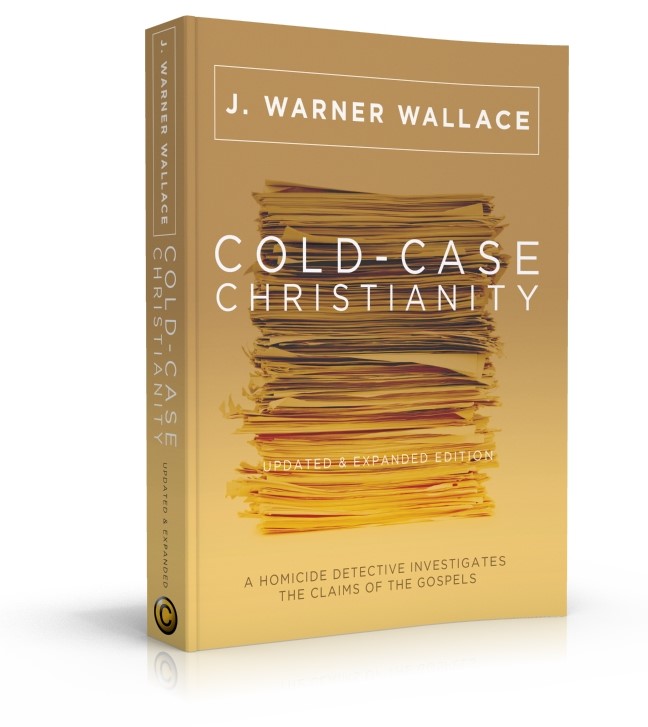When I first examined the New Testament Gospels as an atheist, I was completely uninterested in their claims related to the Deity of Jesus. As a philosophical naturalist, I rejected the supernatural claims of these narratives. I was merely interested in mining the wisdom of Jesus as an ancient sage, in much the same way someone might read the words of Aristotle, Buddha or Bahá’u’lláh. But as I read the accounts as a detective, I became intrigued with features reminiscent of eyewitness accounts I’d investigated. Could these ancient narratives be true eyewitness statements, and if so, could I evaluate them as I had evaluated hundreds of witness statements in the past? This became an obsession and it eventually led to my becoming a Christian and writing the book, Cold-Case Christianity. There are four criteria by which I typically assess eyewitness reliability. The Gospels pass the test in these important areas. Click To Tweet
There are four criteria by which I typically assess eyewitness reliability. The Gospels “pass the test” in these important areas. For this reason, I believe there are four good reasons to accept them as reliable accounts:
They Were Written Early
A significant case can be built to establish the early dating of the Gospels. It starts by establishing the authorship date for the Book of Acts. There are several missing historical events in Acts, including the destruction of the Temple (c. 70AD), the siege of Jerusalem (c. 68-70AD) and the deaths of Paul (64-67AD), Peter (64-67AD) and James (61AD). The absence of these events is reasonable if the Book of Acts was written no later than 60AD. Luke wrote two New Testament books; he wrote his Gospel prior to the Book of Acts. The only question is, how much earlier did he write the Gospel? I think there is good evidence support a dating in the early 50’s based on internal evidence in Paul’s letters. Paul appears to have quoted Luke’s Gospel twice; in 1 Timothy 5:18 (written in 63-64AD) he quoted Luke 10:6-7, and in 1 Corinthians 11:23-26 (written between 53-57AD) he quoted Luke 22:19-20. This means Paul would’ve had access to Luke’s Gospel as early as 53AD. Luke (in the first chapter of the Gospel), told Theophilus: “Therefore, since I myself have carefully investigated everything from the beginning, it seemed good also to me to write an orderly account for you…” This term, “orderly” seems to be extraneous, unless Luke was responding to common first century knowledge about a “disorderly” Gospel. Papias, a first century bishop, famously claimed Mark’s Gospel (written based on the preaching of Peter in Rome) was accurate, if not orderly. Luke appears to have referenced this common knowledge in the opening lines of his Gospel, and Luke quoted Mark’s Gospel more than any other source. But this means the information in Mark’s Gospel is even earlier than Luke’s, placing Mark in the late 40’s or early 50’s. These early dates for both Luke and Mark make it highly unlikely they could have been written without vetting from those who were there and saw the truth about Jesus.
The early dates for both Luke and Mark make it highly unlikely they could have been written without vetting from those who were there and saw the truth about Jesus. Click To Tweet
They Are Corroborated
My investigative and trial experience taught me one important truth: all corroborative evidence is “touch-point” evidence. It’s tempting to think the only kind of acceptable corroborative evidence would be video showing the entire event in minute detail. Few events (either historical or criminal) are documented this well, however. Instead, eyewitness claims are typically corroborated by limited pieces of evidence verifying only a portion of the larger account. Imagine, for example, a witness testifies a robbery suspect approached a bank teller, pointed a gun at her (using his right hand), began to climb up onto the counter (using his left hand), screamed at the teller, and demanded she give him the money from the cash drawer. Prosecutors may introduce fingerprint (or shoeprint) evidence from the counter in an effort to corroborate the witness. If the fingerprints on the counter match the fingerprints from the suspect’s left hand and the shoeprint matches the suspect’s shoe, the statement of the witness would be considered reliable and corroborated by the evidence, even though this corroborative evidence would tell us nothing about what the suspect screamed or whether or not he had a weapon. In a similar way, abundant touch-point corroboration exists to verify the New Testament accounts, even though this evidence is unsurprisingly fractional. From archaeology, to fulfilled prophecy, to the ancient statements of early non-Christian authors, to the internal evidence of language, proper nouns and cultural details, the New Testament Gospels are corroborated better than any other ancient text. Period.
From archaeology, to fulfilled prophecy, to the ancient statements of non-Christians, to the internal evidence of language, names and cultural details, the Gospels are corroborated better than any other ancient text. Click To Tweet
They Haven’t Changed Over Time
But even if the New Testament Gospels were written early, how can we be sure they weren’t altered significantly over the years? How do we know the Gospels we have today are the same as the Gospels originally written by the eyewitnesses? When an original witness is caught changing his or her story, jurors are allowed to consider this change as a sign of deception. In my criminal cases, I typically evaluate the potential alteration of evidence over time by tracing the “chain of custody”. From the first officer who reported a particular piece of evidence, to the detectives who next handled it, to the criminalists who then examined it in the lab, to the detectives who eventually delivered it into the courtroom, I want to know what each and every one of them had to say about the evidence under question. Did they write about it? Did they take a picture of it? The “chain of custody” will help me determine if the evidence was altered over time. In a similar way, there is a New Testament “chain of custody” related to the transmission of the Gospels and letters of Paul. The Gospel of John, for example, can be traced from John to his three personal students (Ignatius, Polycarp and Papias) to their personal student (Irenaeus) to his personal student (Hippolytus). These men in the chain of custody wrote their own letters and documents describing what they had been taught by their predecessors. These letters survive to this day and allow us to evaluate whether or not the New Testament narratives have been changed over the years. The evidence is clear, the foundational claims related to Jesus have not changed at all from the first record to the last.
They Are Not Biased
Finally, there are certainly times when witnesses lie, particularly if they are properly motivated. But what would motivate someone to tell a lie in the first place? In my experience as a homicide detective, there are only three motives behind any homicide, criminal act, or lesser moral impropriety. All sins are caused by only one of three motivations: (1) financial greed, (2) sexual or relational lust, and (3) the pursuit of power. That’s it. That’s all. If the authors of the Gospels are lying about their claims, their only lying for one of these three reasons. Did they get rich from their claims? No. Did they get a bunch of girlfriends as the result of their claims? No. What about power? Couldn’t it be argued that these men became important leaders within their religious community? While this might seem a reasonable motive, apply it to the foremost leader of the early movement: Paul. Paul started off with the authority and respect of his religious community. As a devout religious Jewish leader, he was charged with hunting down members of the Christian community. Are we really to believe he would leave this position and “jump in” with the very group he was happily charged to destroy, only to suffer persecution for many years in the hope he might one day return to a position of religious authority? This seems highly unreasonable and unlikely. None of the Gospel authors gained anything from their testimony and instead suffered persecution and death for their claims. The authors lacked motive and bias.
None of the Gospel authors gained anything from their testimony and instead suffered persecution and death for their claims. The authors lacked motive and bias. Click To Tweet

J. Warner Wallace is a Dateline featured cold-case homicide detective, popular national speaker and best-selling author. He continues to consult on cold-case investigations while serving as a Senior Fellow at the Colson Center for Christian Worldview. He is also an Adj. Professor of Christian Apologetics at Talbot School of Theology, Biola University, and a faculty member at Summit Ministries. He holds a BA in Design (from CSULB), an MA in Architecture (from UCLA), and an MA in Theological Studies (from Gateway Seminary).
































